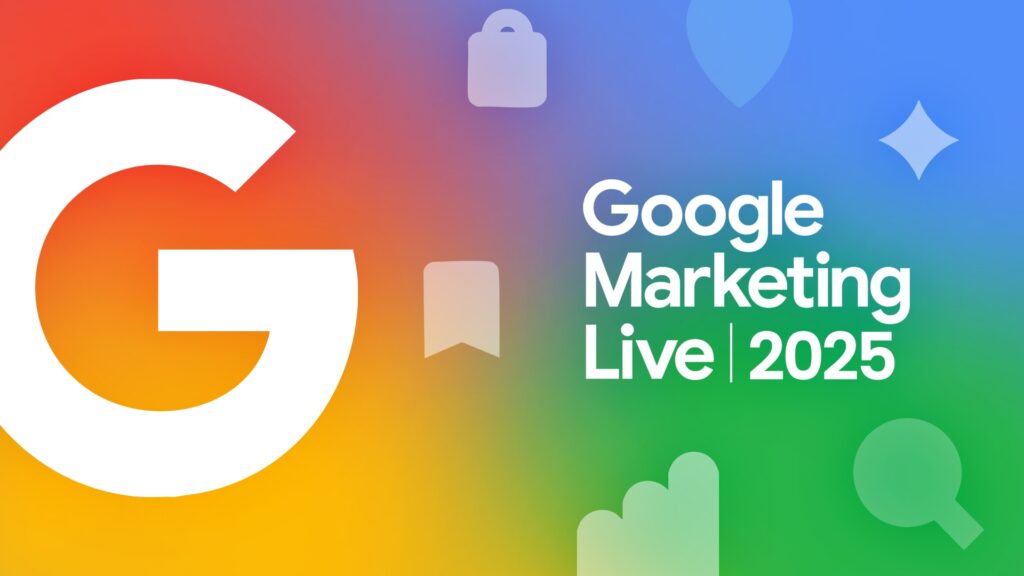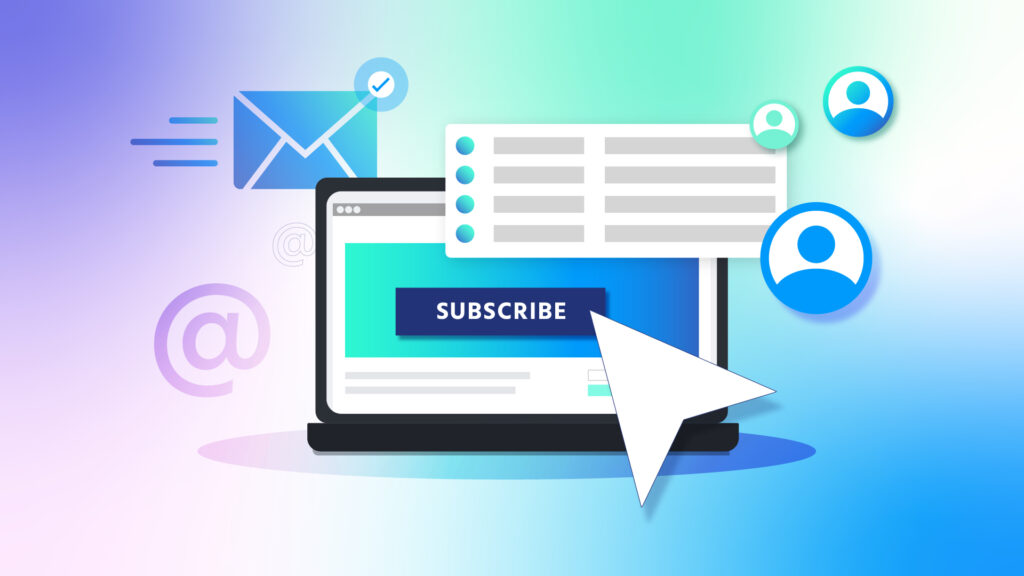
How to Leverage ChatGPT in Your Marketing (and Pitfalls to Avoid)

Recently, companies in many sectors have explored using ChatGPT in place of a full in-house marketing team. Though AI is advancing rapidly, it’s best to proceed with caution; tech still isn’t a replacement for a trained digital marketer.
Humans will always be the heart of marketing. We’re real people, sharing with other real people the products and services that enhance our lives. But that doesn’t mean we can’t leverage the power of AI to make parts of marketing planning faster or more streamlined. Here’s how you can leverage ChatGPT as an enhancement tool to support your human marketing team.
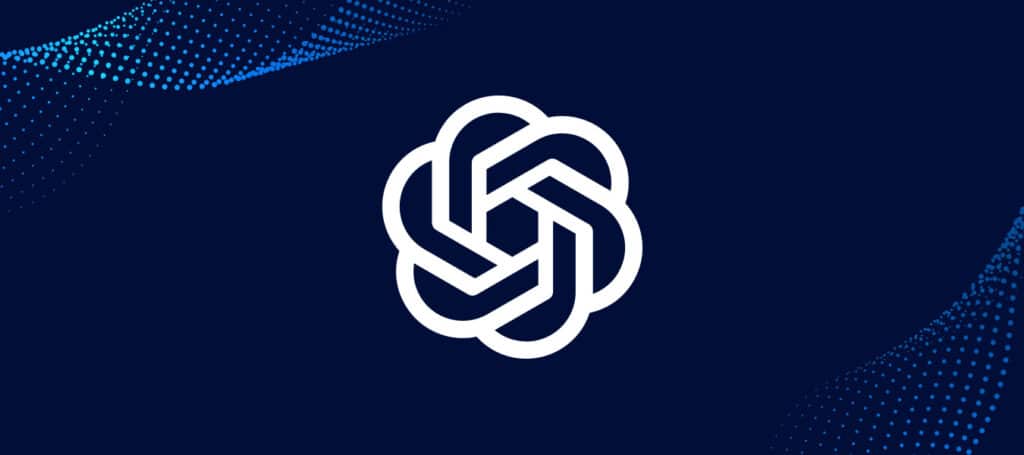
What Exactly Is ChatGPT?
ChatGPT is an AI-powered tool that generates human-like text based on specific prompts. As a chatbot, it can converse and answer questions in several forms, from essays to emails. This is similar to chatbots seen on retail websites but with a more human-like response, thanks to the advanced data it’s trained on.
Created by OpenAI, an artificial intelligence research and deployment company, ChatGPT depends on a type of machine learning known as deep learning to understand queries and supply relevant responses.
Other Renditions of AI-Powered Chatbots
In response to OpenAI’s ChatGPT, Google has developed its own AI chatbot, Bard. This tool uses the Language Model for Dialogue Applications (LaMDA) and is linked to the internet, where it can access real-time data. Bard has a more relevant data set than ChatGPT, which is trained off sources from 2021. It’s a tool to augment Google Search for more contextual search results.
Similarly, Microsoft Bing helps users get more from their web searches. Bing, also known as Bing Search, examines search results for your question and summarizes them based on your needs.
How ChatGPT Can Elevate Your Marketing

Research & Strategy
The beginning stages of audience research and content analysis are perfect opportunities to test AI’s marketing capabilities. ChatGPT can:
- Provide a simple analysis of your topic of choice
- Perform SWOT analyses (Strengths, Weaknesses, Opportunities and Threats) to tighten up your future marketing efforts
- Identify related topics or products for co-marketing opportunities with related companies
- Pick out keywords to target in campaigns, including clustering keywords semantically or generating related keywords
For example, while outlining an article about the current state of digital marketing, we asked ChatGPT to generate ten keywords for “digital marketing in 2023.” Here’s what it returned:
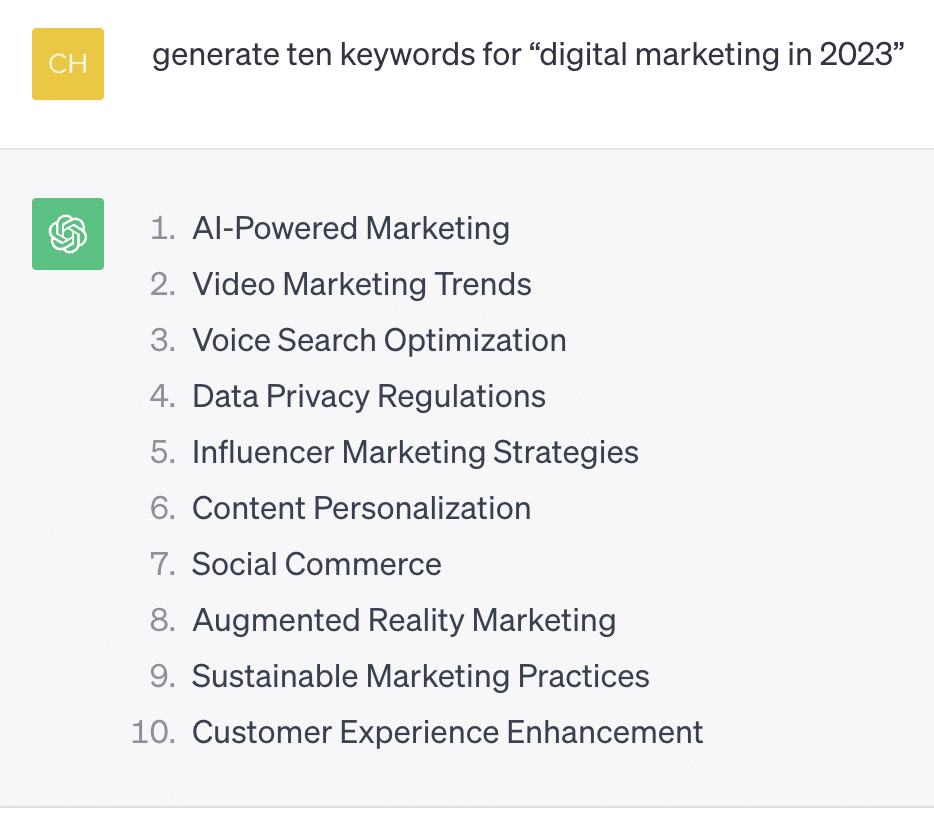
Once ChatGPT gave us a list of ideas, we examined each item to determine whether it was a relevant topic we wanted to include in the blog. It also helped spur a few ideas of our own, such as new video content creation tools. When conducting your own brainstorming session, these lists can be a springboard to build on your existing knowledge and research.
Now that you have your keywords, what about your personas and audience segments? If it’s time to reassess who is interested in your product or explore potential new target audiences, ChatGPT can help. When asked to generate a persona who would be interested in researching current digital marketing tactics, ChatGPT came up with “Sarah”:
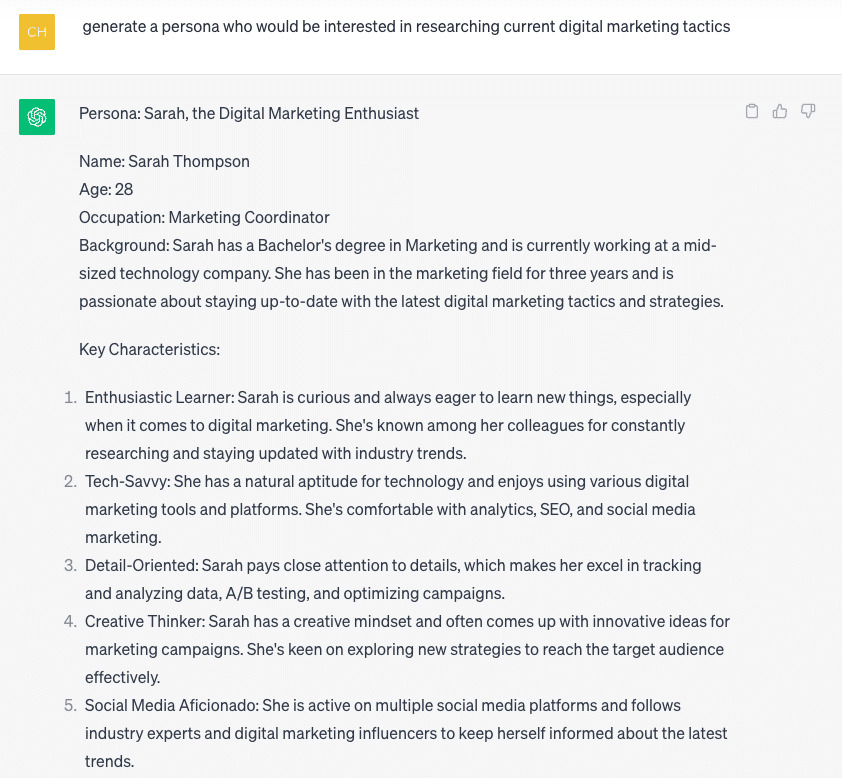
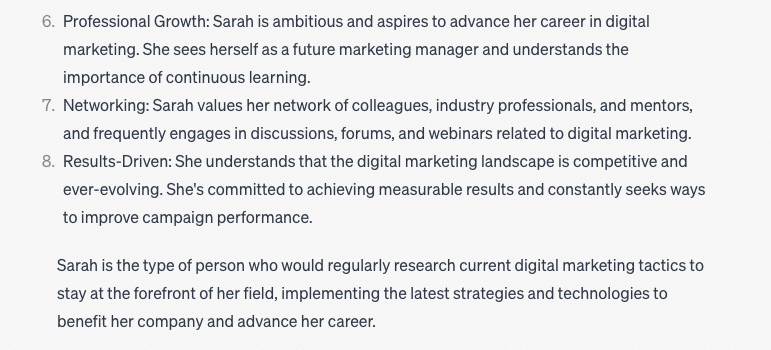
With her goals and challenges laid out, we can now determine how to best relate and communicate with our target audience persona, “Sarah.”
Want to gauge how your consumers feel about your latest products? ChatGPT can help you build a survey or poll. You can ask for recommendations for types of questions to ask, such as a 5-point scale, or have it generate questions about a specific topic.
We asked ChatGPT the following prompt: “List 5 questions on tools digital marketers are using in 2023.” Here’s its response:
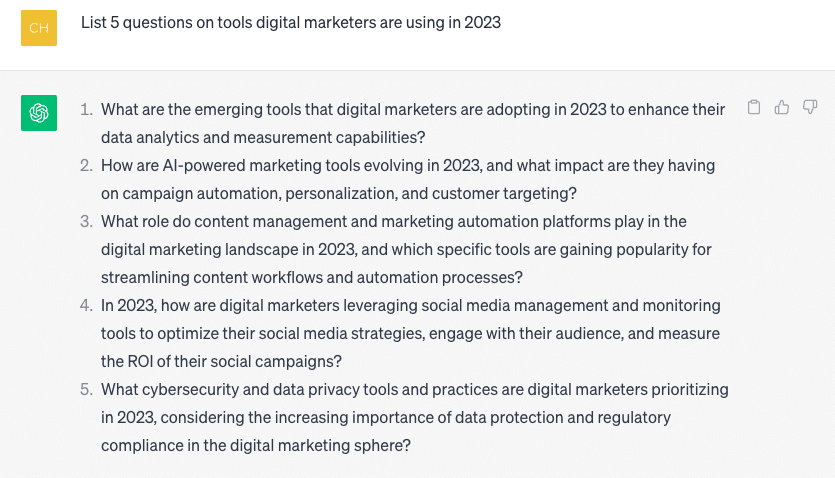
From here, we could select the most relevant questions for our survey and weed out any that are repetitive or off-topic.

Productivity & Creativity
ChatGPT is frequently used for content generation, but how reliable is that content? This is where people often get into trouble, relying too heavily on AI to generate content without then applying critical thinking to create a full picture.
ChatGPT even admits this if you prompt it to talk about its current writing capabilities:

That doesn’t mean ChatGPT can’t help reduce writers’ workflows and allow them more time to be creative. There’s plenty that AI can do to help creatives in the content creation process:
- Gearing up for a brainstorming session on product names, article titles, blog ideas or a social media tagline? ChatGPT excels at this kind of idea generation.
- Ask ChatGPT to create an outline for a writing prompt. You can get more granular with this by inviting an SEO expert to add relevant keywords to the outline. This will give you plenty of information to write a fresh, data-driven piece of content.
- Have a jam-packed schedule for an upcoming event? ChatGPT can analyze relevant keywords and hashtags in your event’s social space to give you plenty of social content ideas.

What to Watch Out for When Using ChatGPT
Since ChatGPT pulls information from the internet, its results may not be 100 percent truthful or dependable. Also, the data it uses to generate responses is from up to 2021, so some information could be outdated. While OpenAI announced a new plugin to retrieve live data, it currently has limited availability. Keep these limitations in mind as you conduct keyword research and competitor analyses.
Because ChatGPT is a chatbot, it lacks the human touch that traditional content marketing requires. The AI isn’t sophisticated enough to tailor content to your brand’s tone and voice. It’s also challenging to convey emotion and engage with your unique audience with chatbot-generated content. It also isn’t SEO-friendly, as Google classifies fully AI-generated content as spam.
Since ChatGPT’s output relies on your prompt, another challenge is ensuring your prompt is concise yet detailed so it can create relevant content. It may take a few tries to get your query just right.
We asked some TriMarkers to share example prompts they’d use to support their work. Here’s what they said:
- “Name a new golf package for a golf resort based on the 2024 U.S. Open”
- “Create a new tagline for a power company’s generators”
- “Explain the biggest needs of executive building owners”
- “Write 10 different headlines for an ad promoting membership to a country club. Each must be under 40 characters”
- “Outline a site page that describes the financial value of replacement windows to new homeowners and potential home buyers”
While ChatGPT will respond to these prompts, the ones with the clearest guidelines or instructions are likely the ones that will receive the most useful results.
Start Using ChatGPT to Aid Your Marketing Strategy
When given a prompt, ChatGPT quickly replies with relevant information to help you get your job done faster. When paired with a marketing team, it can play a helpful role in letting your creatives do what they do best—creating human-centric content for other humans.
Keep Reading
Discover What Drives Results

